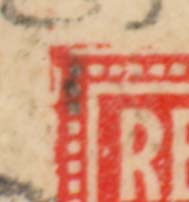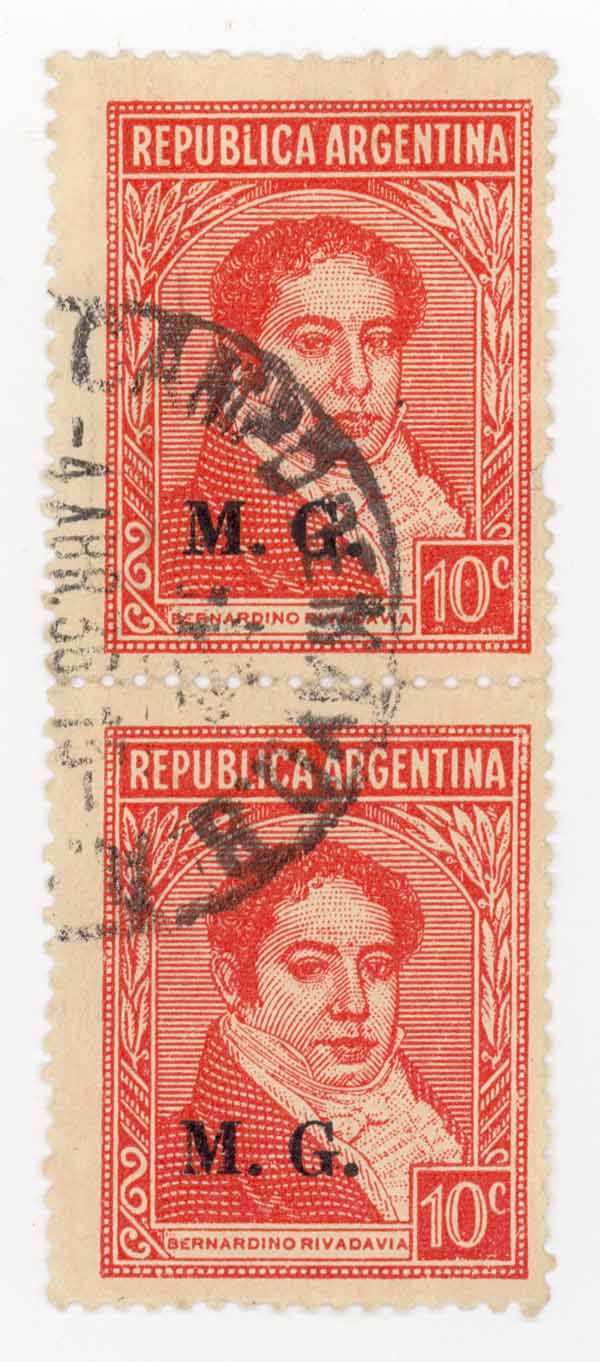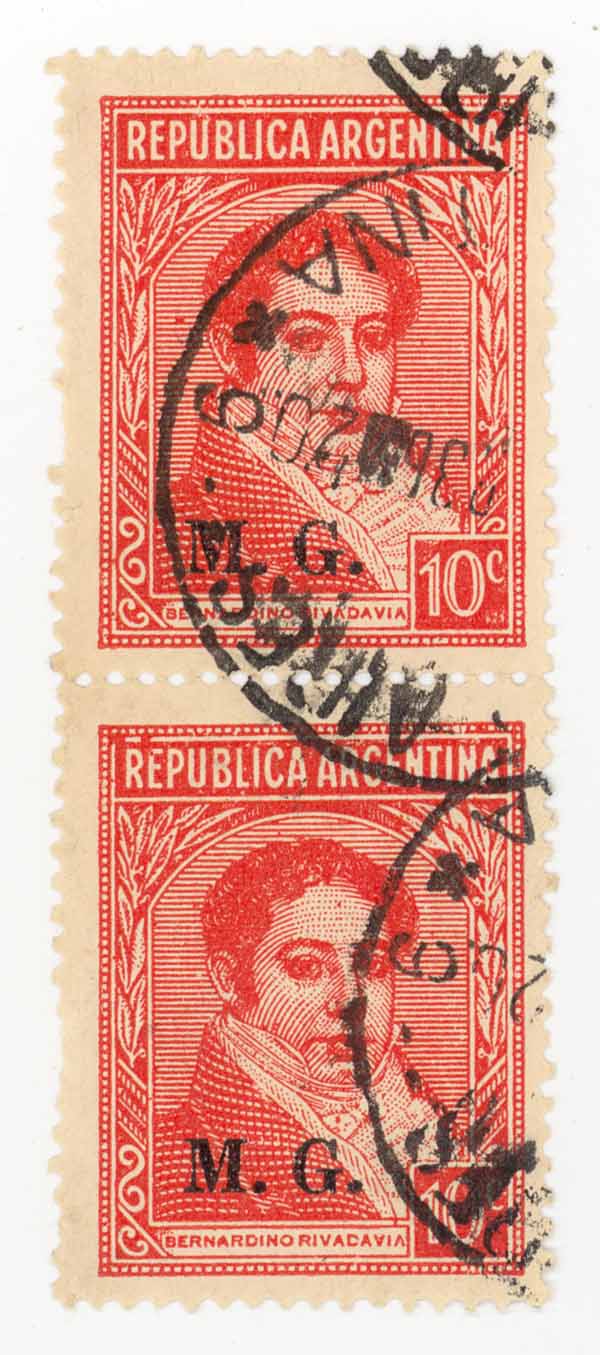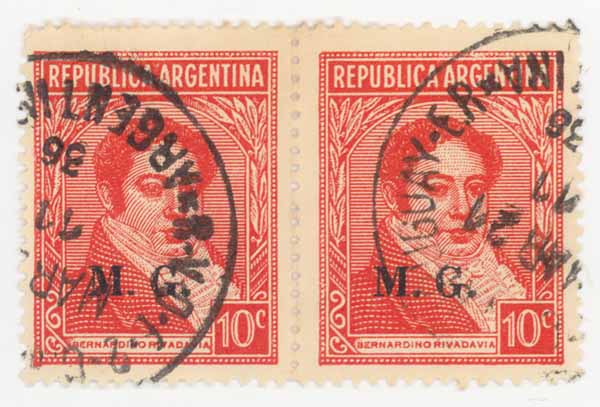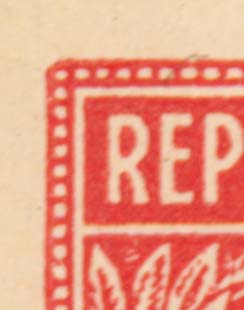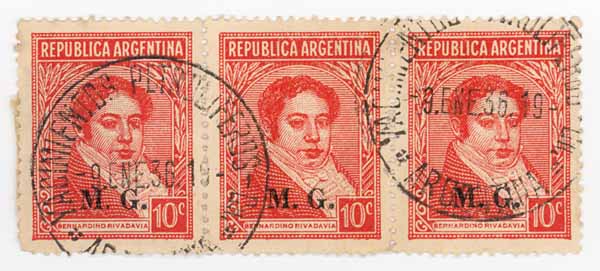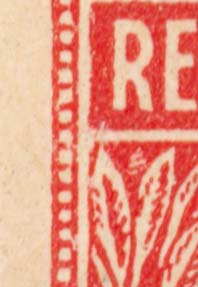A wonderful selection of these high value philatelic covers is being auctioned on ebay. I have gotten bid out of most of them, yet will have a representative sample (I hope!) when all are finally sold. The covers bear the high values, mostly the 2 pesos and 5 pesos, and at least one with a 10 pesos value. The rates don't match correct rates, as is to be expected for a philatelic use. Without knowing the weight of this specific cover, it is likely the correct rate was 15 centavos with registration or ceritification fees in multiples of 50 centavos or 1 peso, and not 4 pesos.

I can't tell the watermark from this image, but this should be a 1E1 printing. The 1 peso without boundaries was issued February 1, 1937.

For the two pesos I clearly see the watermark and this is indeed a 2p1E1.


Here is a second cover from this correspondence, this time with a pair of 1pL, one with the "long scratch across Argentina map," a celebrated and very rare plate variety.


The left stamp has a plate variety.

The right stamp is the "long scratch across Argentina map" plate variety.


The 2 pesos has to be 1E1 because this was the only paper in use in early 1936.


Here is a normal postal use from the same era to the same country, and it is a 1.35 pesos rate.

































